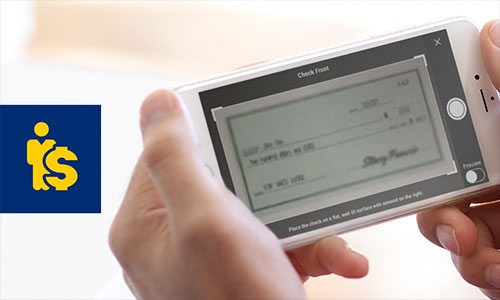A checking account is a convenient way to manage daily and monthly money matters, whether through accessing cash, paying bills, depositing a paycheck or growing savings. And since these transactions can add up over a month, it’s important to watch out for related fees that can creep up if you’re not careful.
Fortunately, many financial institutions offer a “free” checking account option. Unfortunately, “free” doesn’t always mean free. Below, we’ll take a closer look at some of the things to watch out for before opening a checking account to ensure you know exactly where your money is going, and what costs you could potentially incur.
But first, what is a free checking account?
In most cases, a “free” checking account comes with the understanding that your financial institution will not charge:
- a monthly maintenance fee
- a fee for exceeding a certain number of transactions
- a fee for making a deposit, withdrawal or money transfer
Overall, free checking accounts are meant to give the consumer a sense of reassurance that they don’t need to be on the lookout for sneaky fees or familiarize themselves with long disclosures. Using the account requires little maintenance, upkeep, or money.
When “free” checking comes with qualifiers.
However, financial institutions may place conditions that must be met for a customer to qualify for the institution’s “free” checking account option. Requirements may include:
- linking a direct deposit to the account, which means having your employer transfer part or all your paycheck electronically into your bank account each payday
- maintaining a savings account with the financial institution
- making a specified number of debit card transactions each month
- maintaining a minimum balance in the account, and/or
- maintaining electronic statements, as opposed to paper statements
If these requirements are not met, a fee may be incurred, or you may not be eligible for a benefit associated with the account.
In addition to these conditions, banks and credit unions may also charge for services related to using the checking account, including:
- ATM fees: Your bank or credit union may charge you a fee when you use your ATM/debit card to withdraw money from an ATM outside of their network. (This fee is in addition to the fee that the ATM itself may charge for the withdrawal.)
- Check-printing fees: Most checking accounts require the account holder pay for printed checks they order and receive through the mail.
- Overdraft fee: If your checking account doesn’t have enough money to cover a transaction, but your financial institution covers it for you, you may be charged an overdraft fee.
- Stop payment fee: If you write a check and later decide to cancel it for whatever reason before it has been cashed, you may incur a fee.
- Paper statement fee: If a checking account is marketed as “online” with electronic statements, there may be a fee if a user elects to receive paper statements instead.
How to Weigh the Pros and Cons of Checking Account Fees and Requirements
Understanding what conditions are placed on a free checking account is important before opening the account. For instance, what happens if you don’t meet the requirements of the account? Are you charged a fee or a penalty? If the account has a minimum balance requirement, what is the likelihood you’ll let your account fall below the threshold? What penalty, if any, is applied? What fees are applied to in-network and out-of-network ATM deposits and withdrawals? How often will those fees apply to you?
Then, ask yourself whether the conditions placed upon the account are deal-breakers. For example, direct deposit is a convenience for most people as it can free up the time and effort of physically depositing a check as well as allow access to funds sooner. A minimum balance threshold may prevent an overdraft. A savings account with the same financial institution can make it convenient to move money from a checking account to an account with a potentially higher APY, allowing the consumer to earn more interest. And so on.
However, if one or more of the conditions doesn’t make sense for you, “free” doesn’t mean free. It’s best to continue your search, and keep that hard-earned money in your pocket.
Questions to Ask When Shopping for a Free Checking Account
Keep the following questions in mind when determining whether or not a free checking account is in fact “free,” and when comparison shopping:
- Special requirements: Does the account have special requirements that you must meet? Will it require additional resources or obligations from you to meet them?
- Account minimum: Does the bank or credit union require that you maintain a minimum daily balance in the checking account? How burdensome will maintaining that daily balance be for you? Be honest.
- Common checking account fees: How much are overdraft fees, check printing fees and stop payment fees? Will this be a factor for you? What are the fees for out-of-network and international ATM withdrawals?
- ATM network: How extensive is the financial institution’s ATM network? Are the ATM locations convenient for you? Will out-of-network fees be a consideration?
- Overdraft protection: Is an overdraft protection plan offered? Overdraft protection can be a valuable way of ensuring your never transaction is never declined, but there may be a hefty fee associated with the service. Ask yourself how likely you are to potentially go negative, and what these dips could cost you.
Other Questions to Consider
While the questions below won’t help you to determine if there are costs related to your free checking account, they’re very helpful questions to ask to ensure your checking account is working for you:
- Interest-earning rules: Does the checking account pay interest? If so, how much, and is there a minimum amount for that interest to kick in, or a maximum amount before the rate drops?
- Online banking and mobile banking: Does the bank or credit union offer online and mobile banking? These services allow you make deposits, transfer funds, pay bills, track your spending and perform other tasks anytime, anywhere.
- Insured account: Confirm that your bank is insured by the FDIC or the credit union is NCUA-insured. This gives you the security and peace of mind knowing that your funds are federally insured up to $250,000 should anything ever happen to the financial institution.
How to Get the Most Our of Your Free Checking Account
When opening any financial account, it’s important to review all the benefits and fees in their totality. Don’t become enamored with the word “free;” sometimes the benefits of “free checking” can be offset by their requirements. Make sure the account you open meets your financial needs and do your due diligence. Only by answering the questions above questions will determine whether a free-checking account is truly free for you.






Comments Section
Please note: Comments are not monitored for member servicing inquiries and will not be published. If you have a question or comment about a Quorum product or account, please visit quorumfcu.org to submit a query with our Member Service Team. Thank you.